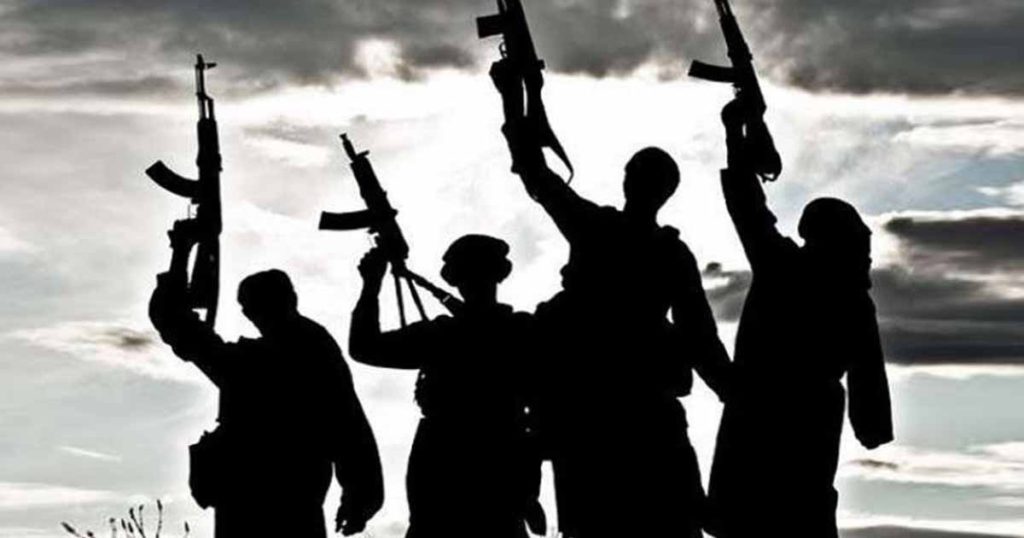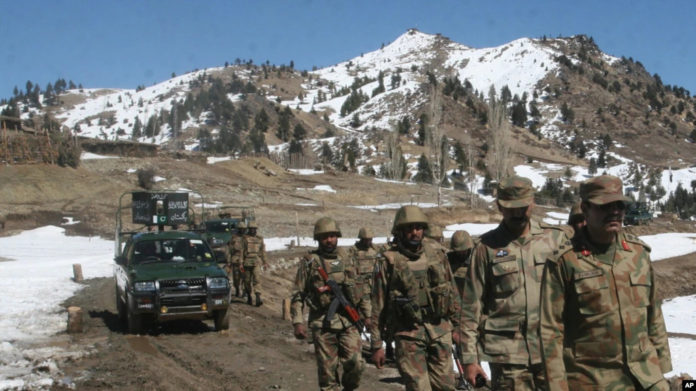Going into battle without adequate training or being properly equipped is bad enough, not having sufficient force, without proper motivation and/or not having battle-tested senior commanders and down the line, is asking for trouble. Not surprising that an unmitigated disaster militarily, the 2004 operations in FATA and the subsequent 2007 one in Swat were badly flawed. With consequent set-backs in operations a peace treaty had to be signed. An unmitigated disaster militarily, this was not only psychologically devastating but debilitating for the morale and self-confidence of the Army.
Counter-Insurgency Operations (COIN) training became a must for all troops going to FATA and Swat as late as 2008. Intensive combat orientation was necessary to destroy the terrorist’s capacity to remain a “clear and present danger” to the country. With the entire process involved rotating of fresh troops, replenishing depleted ammunition reserves and inducting of increased aviation capability. Shifting troops from proximity to their battle locations and retraining troops for counter insurgency (COIN) operations became a fine balancing act. Training included protecting against Improvised Explosive Devices (IEDs) and roadside bombs. Locally recruited Frontier Corps (FC) troops were lightly armed, good only in their policing role, dealing with internecine tribal rivalry and border smuggling, rather than engaging in military operations combating well-armed and experienced guerillas. With the entire FC orientation changed into that of combat mode, the Army’s counter insurgency capacity was substantially enhanced. This was successfully seen executing Operation Zarb i Azb.
It is counter-productive to keep the Army engaged over a long period, viz (1) the local population starts to react to what the militants propagate as Army excesses and (2) there is a debilitating and corrosive influence on the efficiency, morale and motivation of Army personnel. Far more worrying is that success in the battlefield leads to over-confidence and that can breed arrogance, in the planning and entering battle thereof it makes for unnecessary risk-taking.
We must not blur the distinction between religion and nationalism, we were (and are) ambivalent in curbing religious militancy. Attempting to marginalize the mainstream political parties, our intelligence agencies contrived at one time to have the combined religious parties win more seats than they had ever done before as individual parties. These religious ideologues acquired power without understanding or having patience with anyone who do not adhere to their myopic interpretation of religious strictures. Militant funding coming through foreign exchange dealers and “havalas”, directly or indirectly through corruption, only electronic processing through scheduled banks will stop the flow. The State Bank of Pakistan (SBP) has given the operational and administrative instructions for that. Close monitoring of funds ostensibly meant for charity and originating from corruption must be done.
Appeasement should never be an option, the militants have the blood of too many innocents on their hands. A brutal minority cannot be allowed to dictate to the “great silent majority” through the barrel of a gun under any circumstances. The touchstone of success lies in being fair to all, without fear or favour. No community is discriminated against because of their lineage or political leanings, otherwise the battle will be lost. We have to re-think our electoral process. Our present bankrupt electoral process will never allow democracy to function at the grassroots level, without participation of all the stakeholders the moral basis of a democratic society is eroded. Neither counter-insurgency nor a post counter insurgency campaign can succeed and/or be sustained without the support of the people. An insurgent may be wrong but he believes his cause is just and his motives are unselfish, a strong counter-narrative is a must.
The bottom line is to break the nexus between corruption, organized crime and terrorism, viz that (1) while insurgency and terrorism aim to alter the status quo of the prevailing system, relying on corruption “organised crime” aims to form a parallel government while coexisting with the existing one; (2) militants primarily use violent means, “organised crime” prefers non-violence notwithstanding the odd resort to belligerence, even using subverting the rule of law by using the police as a “show of force”; bad enough in urban areas but devastating in the rural areas and (3) while militancy is driven purely by political objectives despite exploitation of regional, national and religious sentiments to achieve their ends, corruption is operational determinant of “organised crime”, with “terror financing” and “money laundering” at the heart of the problem.

Modern militants, bordering on the “Daesh” kind, with enormous funds at their disposal have no regard for human life. Feudalism is not only alive and well in Pakistan in contrast to the rest of the world, it is actually flourishing. “Daesh” will come to Pakistan if we allow free rein to our feudals, both the old and new ones. Desperate people do exist in different cultures and countries, but they do they have the Capacity to provide anyone with explosives, reconnaissance and transportation as is done openly in Pakistan through indirect support of the elite members of our society? Is it to perpetuate their autocratic rule in a destabilized situation? However the symbiotic relationship does not mean that all militants’ acts are because of organised crime, and neither are all criminal acts militancy.
The Federal Govt must define the future state of security alertness, the detailed recommendation including (1) the specific stakeholder/security authority; (2) rating of current status/quality/ability; (3) recommendations must not be limited to organizational restructuring, manpower needs and training, electronic solutions and the need for specialised equipment ; and (4) priorities spelt out. With many of our urban areas vulnerable, external sources and expertise must be tapped without further delay. Insurgency may feed urban terrorism, it is the funds and resources from urban areas that feeds insurgency.
One of the great fallacies in public perception is that successful counter insurgency operation (Cl ops) is the end all, that the elimination of insurgents and denying the physical space is the end of the mission. Cl ops is only less than 1/3rd of the process, this includes re-settlement of Internally Displaced Persons (IDPs). For more important is giving them a means of livelihood and providing good governance across the broad spectrum. It is only after many years of the insurgency ending in Swat that we have .a semblance of civilian administration. There is still al lack of will on the part of the Federal and Provincial Govts to fill this glaring vacuum. Local governance is a must so that the people of the insurgency affected areas feel they have control over their own governance and not subject to dictation by outside.
Otherwise all the gains of Counter-Insurgency will be lost.




